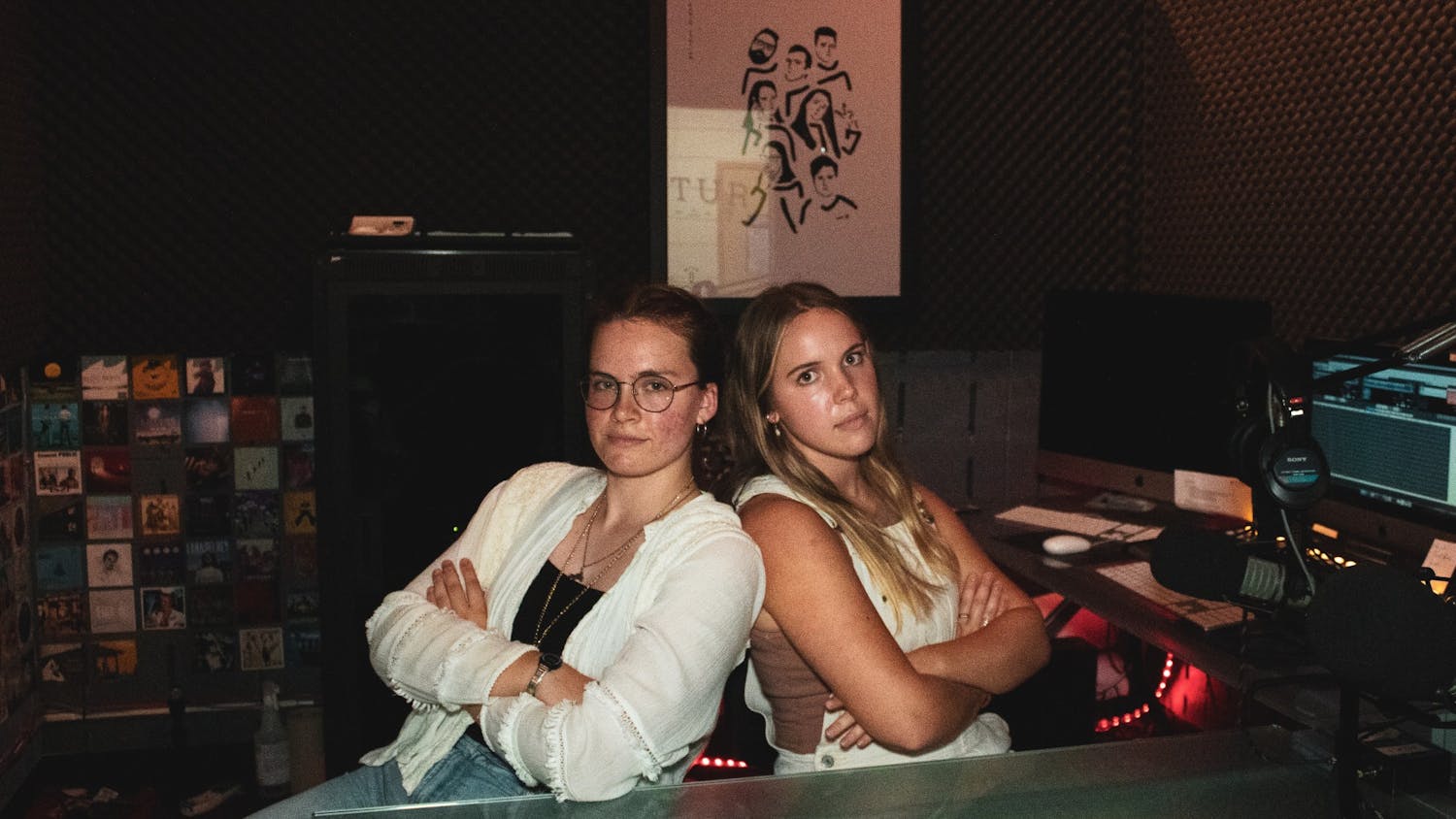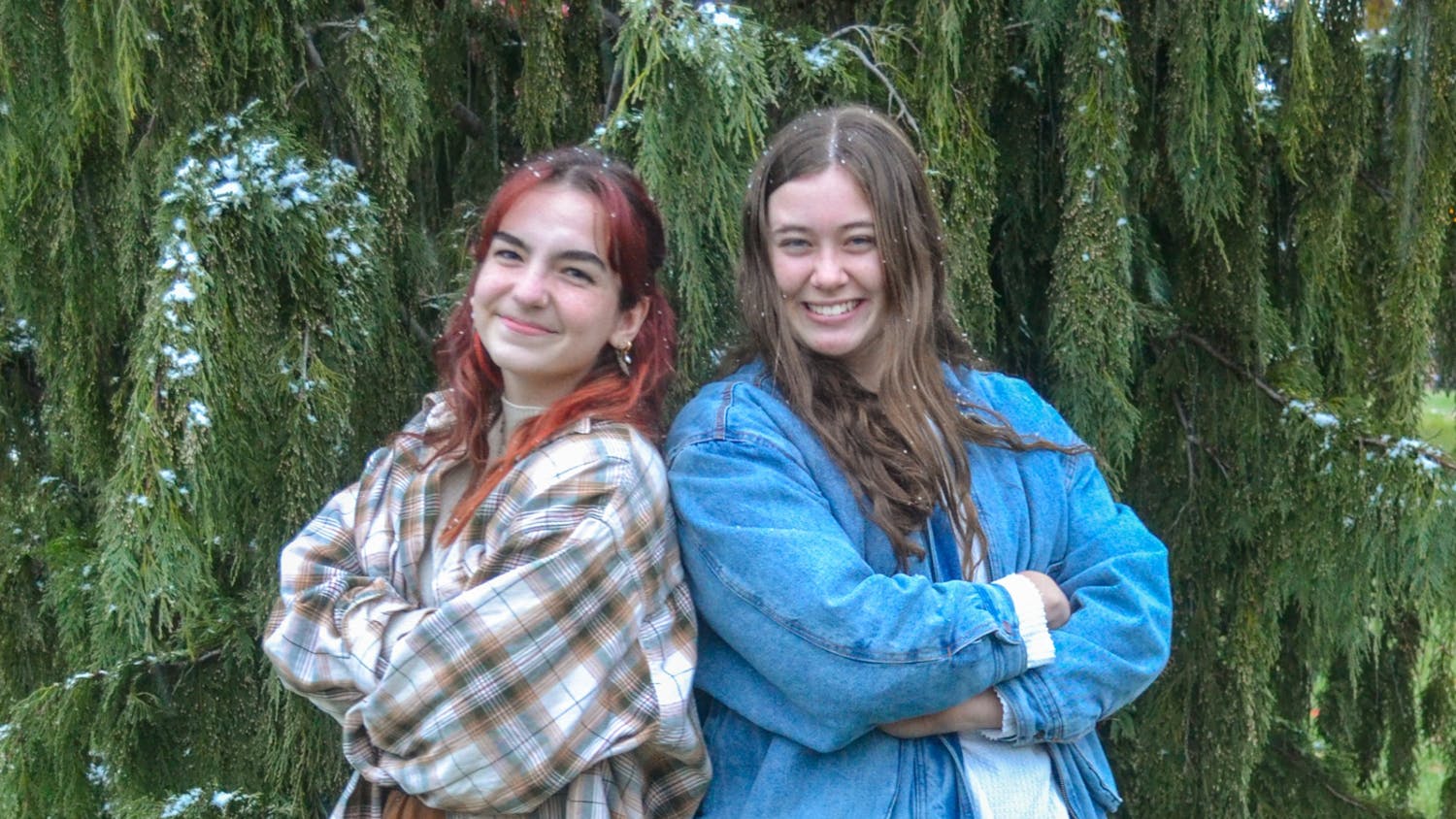The members of Rice Pilaf are grateful for what they consider a “weird energy” that surrounds the group this year.
Rice Pilaf, often shortened to Pilaf, is Taylor’s improvisational comedy club.
Pilaf is thrilled to have welcomed even larger audiences to their first two shows already this fall than they have experienced in previous years.
Junior computer science major Trent Repass has been a part of the group since his freshman year.
“It’s almost like the penultimate vision of Pilaf is kind of happening,” Repass said. “Where we have this unofficial, kind of weird, quirky club on campus that’s getting just as much attention as the, you know, the ‘SAC’s’ and the ‘ICC’s.’ And so, I think it’s just — it’s really exciting to have that. It’s exciting to have that kind of pressure.”
Despite all the change the team is seeing this season, they have worked to keep many aspects of Pilaf consistent with past years.
While the members have researched the possibility of taking the steps to make Pilaf an official club, they ultimately decided to keep it as it has historically been known.
“Rice Pilaf has actually never been an official club since its inception,” Repass said. “You know, it’s kind of cool, that sort of way that Pilaf lives and dies by the culture of it, rather than it being on a list of clubs on campus.”
Today’s Pilaf members can thank Dan Buck (‘97) for beginning this tradition by founding the team during his time at Taylor.
Buck is also credited with the creation of the name Rice Pilaf, which he thought was a creative name that should be uttered far more often than when ordering a dish at a restaurant.
Pilaf may be an unofficial club, but this fact does not prevent them from uniting with Taylor’s values or from receiving notoriety on campus.
Wesley Jones is a senior history major at Taylor. Like Repass, Jones has also been involved with Pilaf since his freshman year and has been selected to step into a leadership position as captain of the team this year.
Jones leads the group through the rhythm of weekly practices as well as pre-show rituals.
Each Tuesday night, Pilaf members meet to practice their improv techniques — often, they choose games that will help them polish the skills they want to develop for an upcoming show.
Most of the games that they play are passed down from previous years of Pilaf, or ones that the members learned from their high school improv groups.
Rehearsals are an opportunity to bond together, with the goal of developing a sense of trust behind the scenes that will translate into success in front of an audience.
“When you have a comedy group like this, it’s just important to be together as much as possible,” Repass said.
Practices also involve planning themes for upcoming shows and talking through the setlist.
As captain, it is Jones’ responsibility to craft each show’s setlist, which typically includes six to seven games.
Jones takes care to ensure that each person is represented equally throughout the setlist, and that the members get to perform games they’re both confident in and excited about.
As is the nature of improv comedy, the members thrive off feedback from the audience, so while Pilaf puts in hard work during rehearsals, they truly shine during live performances.
When it comes time to bring their hard work to fruition, Pilaf members have a few pre-show rituals that they participate in.
One ritual that the team is grateful to have revived post-Covid is going out to dinner together before each show.
Upon returning back to the stage, Pilaf members gather for group prayer.
“We like to pray over the show,” Jones said. “You know, we want to make sure that it’s glorifying and that, ultimately, people enjoy it and that we can glorify Him.”
After prayer, Pilaf gathers backstage to engage in what they term an “energy circle.”
In a huddle, they begin by whispering “energy” to each other, then progressively get louder and more energized as they hype each other up to walk out on stage.
Jones, Repass and their teammates were happy to see Cornwall packed out for their first show of the year.
While Pilaf has traditionally been a small group as compared to other clubs, the team greatly values accessibility and originality.
“We don’t want people coming into Pilaf auditions being like, ‘Man, I really want to learn how to do comedy like Wesley Jones or like Aidan Merck,’” Repass said. “We want people to come in and say, ‘I want to bring my own stuff to the context of these games.’”
Jones and Repass encourage prospective members to attend Pilaf’s workshops and develop their scene work.
They also emphasize the importance of finding something that can be shared with the audience.
“Something important to remember is that when you are making a scene, in improv, you are not trying to be funny,” Jones said. “The ‘funny’ happens as an unintended consequence of us trying to make a scene, something that makes sense, something that has characters and relationships and a setting — that, even if it’s kind of absurd and wacky, still speaks to a common human experience that we can all share.”
Pilaf has welcomed three new members to their 2022-2023 team, bringing the group’s total to eight members.
They are humbled to have seen an increase in support for their work across campus, which fuels the quality of their work.
“We’re very flattered, honored and humbled that something that we love to do is regarded as entertaining, and so well liked, and it makes us want to do more with our group,” Jones said.
While they express their gratitude for the student body’s support, Jones and Repass believe that, ultimately, the Lord is behind the group’s efforts.
By God’s providence, they have been able to form strong connections within their team of eight, with students all over campus and with the larger improv community.
“God’s working through Pilaf and connecting people together,” Repass said.
Above all, the members of Rice Pilaf know that they will find the greatest fulfillment as they seek to glorify their Creator with the gifts he has entrusted to them.





